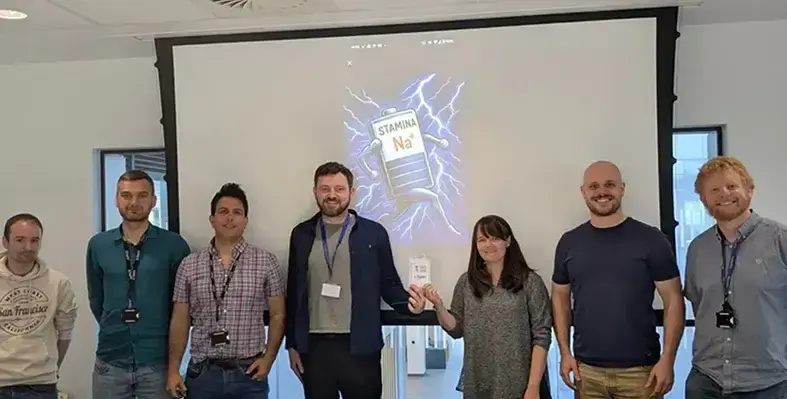A Swansea University-led initiative has secured crucial funding to help deploy advanced battery systems in sub-Saharan Africa, supporting cleaner and more sustainable mobility solutions
The StamiNa – Sustainable Transport and Affordable Mobility through Innovation in Na-ion technology – project is one of five collaborations to receive investment from the Faraday Institution, under the second phase of the Ayrton Challenge on Energy Storage (ACES) R&D programme. Led by Swansea University, the consortium includes Coventry University, Batri Ltd, Strathmore University (Kenya), AceOn Group, and the Federal University of Technology Owerri (FUTO) in Nigeria.
These projects aim to optimise and validate battery systems that improve performance, enhance efficiency, and extend lifespan, ultimately driving the technologies closer to commercialisation.
StamiNa focuses on demonstrating and validating a new sodium-ion battery (SIB) technology through the creation of a prototype swappable battery pack tailored for e-mobility applications in East Africa.
Professor Serena Margadonna, Chair in Materials Engineering at Swansea University and project lead, said, “We’re proud to lead the StamiNa project, which brings together state-of-the-art sodium-ion battery technology developed at Swansea University with a shared vision for sustainable, equitable innovation.
“This collaboration goes beyond technology advances — it’s about delivering environmentally responsible, locally sourced solutions that are accessible to all. Together, we aim to accelerate commercialisation while supporting the growth of an African-led battery ecosystem with a local supply chain.”
SIBs offer a promising alternative to lithium iron phosphate (LFP) batteries for Africa’s e-mobility transition. They are easier to transport and face fewer supply chain challenges. The StamiNa project’s technology, jointly developed by Batri Ltd and Swansea University, utilises Prussian White cathodes and coal-derived hard carbon anodes. With energy density predicted to exceed that of commercially available SIBs, the technology stands to compete directly with LFP.
Importantly, Prussian White is synthesised in water under mild conditions and contains no nickel or cobalt, allowing for a more sustainable and energy-efficient production process that supports the creation of local supply chains.
Key objectives of the StamiNa project include:
Scaling up production of the active materials;
Refining electrode and cell assembly processes, and manufacturing multilayer pouch cells and 18650 cylindrical cells at Coventry University;
Integrating cylindrical cells into AceOn’s swappable battery pack for real-world field testing on e-bikes at Strathmore University (Kenya);
Evaluating pack performance at FUTO (Nigeria) and benchmarking against LFP and existing SIB alternatives;
Assessing cost, supply chain viability, recyclability, and sustainability of the technology for Sub-Saharan markets.
Through this initiative, the project aims to fast-track the commercialisation of UK-developed SIB technology while helping to build a sustainable, African-led battery ecosystem that underpins clean mobility and electrification across the continent.












